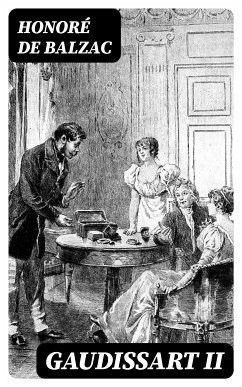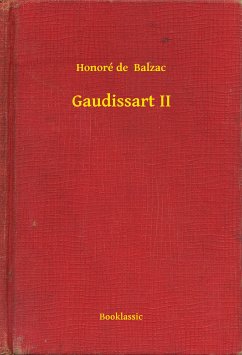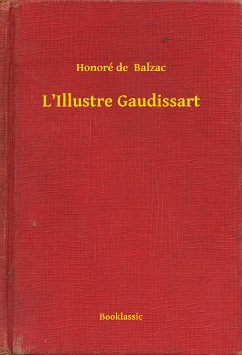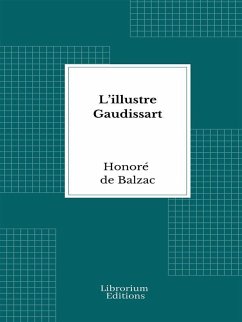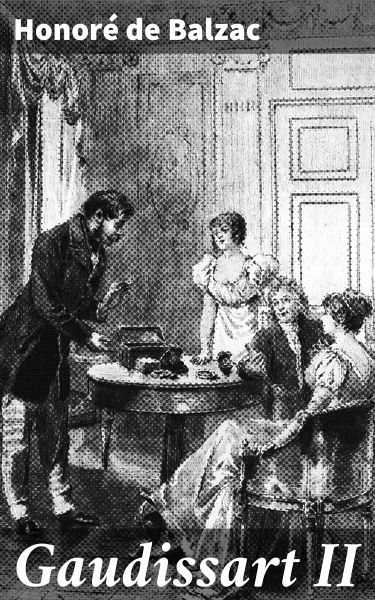
Gaudissart II (eBook, ePUB)
Unraveling Ambition and Deceit in 19th Century France
Übersetzer: Bell, Clara
Versandkostenfrei!
Sofort per Download lieferbar
0,49 €
inkl. MwSt.
Weitere Ausgaben:

PAYBACK Punkte
0 °P sammeln!
In "Gaudissart II," Honorv© de Balzac intricately weaves a narrative that emerges as a masterful exploration of the mercantile spirit within a changing societal landscape. Set against the backdrop of 19th-century France, the novella employs a keenly observed realism laced with subtle satire, reflecting Balzac'Äôs nuanced understanding of human nature and ambition. This work is part of Balzac's larger series, "La Comv©die Humaine," which scrutinizes the complexities of social interactions and economic aspirations, with Gaudissart epitomizing the commercial traveler'Äôs life and the relent...
In "Gaudissart II," Honorv© de Balzac intricately weaves a narrative that emerges as a masterful exploration of the mercantile spirit within a changing societal landscape. Set against the backdrop of 19th-century France, the novella employs a keenly observed realism laced with subtle satire, reflecting Balzac'Äôs nuanced understanding of human nature and ambition. This work is part of Balzac's larger series, "La Comv©die Humaine," which scrutinizes the complexities of social interactions and economic aspirations, with Gaudissart epitomizing the commercial traveler'Äôs life and the relentless pursuit of success within the capitalistic framework of the time. Honorv© de Balzac, a pivotal figure in the realist movement, was deeply influenced by the tumultuous social changes of his era, which ignited his fascination with the minutiae of human behavior and social hierarchies. His own experiences with financial failure and endeavors in various occupations contributed to a profound understanding of the aspirations and disillusionments that define the modern capitalist experience, illuminating the themes present in Gaudissart's encounters and ambitions. Readers will find "Gaudissart II" a compelling and enlightening read, offering incisive commentary on ambition and societal norms. This novella is not only a reflection of Balzac'Äôs artistic prowess but also a mirror to the reader'Äôs own encounters with ambition, making it an essential addition to any literary canon.
Dieser Download kann aus rechtlichen Gründen nur mit Rechnungsadresse in A, B, BG, CY, CZ, D, DK, EW, E, FIN, F, GR, H, IRL, I, LT, L, LR, M, NL, PL, P, R, S, SLO, SK ausgeliefert werden.





